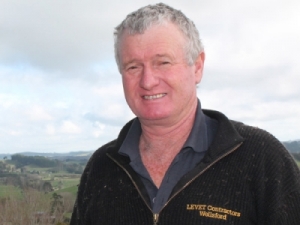Visa changes bring fresh woes
Rural Contractors NZ says members are frustrated at having to work through more layers to get visas approved for skilled seasonal machinery operators ahead of the imminent season start. Andrew Olsen comments.
 Agricultural contractors around the country must play their part in helping to prevent the spread of the invasive weed velvetleaf, says Rural Contractors NZ president Steve Levet.
Agricultural contractors around the country must play their part in helping to prevent the spread of the invasive weed velvetleaf, says Rural Contractors NZ president Steve Levet.
Agricultural contractors around the country must play their part in helping to prevent the spread of the invasive weed velvetleaf.
This is the message from Rural Contractors NZ (RCNZ) president Steve Levet.
Levet is reminding contractors about the importance of biosecurity and machinery hygiene practices on, and between farms, in controlling the spread velvetleaf and says rural contractors have an important role to play in this.
"Contractors need to be conscious of the potential of spreading velvetleaf when moving between properties, or between areas of the same property, and to take responsibility in managing these risks," he says.
Velvetleaf plant seeds can be spread by the movement of vehicles, machinery, feed or stock. It can also spread to new areas of the same property, between neighbouring properties, or even between regions.
Levet says by implementing some simple biosecurity practices rural contractors can help protect the spread of unwanted pest plants such as velvetleaf.
"Farmers and other professional operators in the rural sector like contractors need to pull together to help protect our agricultural sector from the spread of velvetleaf and other pests. I just want to remind rural contractors to stay vigilant and keep up sound biosecurity practices."
Levet says RCNZ has worked with national pest agencies to produce guidelines for machinery hygiene to prevent the spread of pests and weeds, which includes a hygiene logbook:
Legal controls on the movement of fruits and vegetables are now in place in Auckland’s Mt Roskill suburb, says Biosecurity New Zealand Commissioner North Mike Inglis.
Arable growers worried that some weeds in their crops may have developed herbicide resistance can now get the suspected plants tested for free.
Fruit growers and exporters are worried following the discovery of a male Queensland fruit fly in Auckland this week.
Dairy prices have jumped in the overnight Global Dairy Trade (GDT) auction, breaking a five-month negative streak.
Alliance Group chief executive Willie Wiese is leaving the company after three years in the role.
A booklet produced in 2025 by the Rotoiti 15 trust, Department of Conservation and Scion – now part of the Bioeconomy Science Institute – aims to help people identify insect pests and diseases.

OPINION: The release of the Natural Environment Bill and Planning Bill to replace the Resource Management Act is a red-letter day…
OPINION: Federated Farmers has launched a new campaign, swapping ‘The Twelve Days of Christmas’ for ‘The Twelve Pests of Christmas’ to…